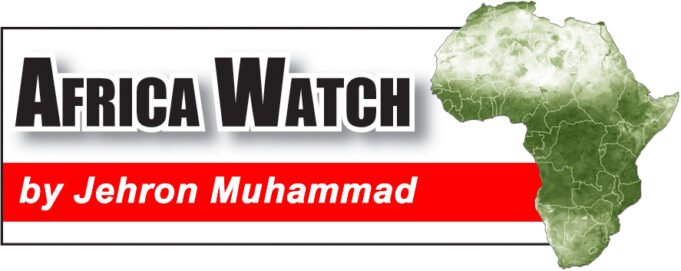This year on the African continent, Ramadan, the annual month-long fast of the Muslim world, has come as food shortages and rising costs have left shoppers unable to splurge. During the four weeks of this sacred Islamic holy month, which is observed by nearly two billion Muslims worldwide, participants will abstain from food and drink from dawn to dusk, before gathering with family and friends to break the day of fasting with meals and gatherings called Iftar.
According to Islam, fasting and introspection draw the believer closer to Allah (God) and remind them of the suffering of the poor.
The Iftar meals in Africa are very diverse. South Africa with its diverse Muslim population often breaks fast with popular Muslim/Arabian foods such as samosas, dates and a variety of other dishes from different cultural backgrounds. Some of them include Malay curries and Indian biryanis so popular in South Africa, according to seeafricatoday.com.
Preparation for Ramadan in the Motherland starts in the middle of the month of Shaaban, (before the month of Ramadan). Muslims begin to prepare for the month of Ramadan by decorating mosques, streets, and shops with lamps and lights, as well as starting family visits in preparation for the holy month.
In addition to fasting, Muslims are encouraged to read their holy text the Qur’an in its entirety and give in charity. “Mosques and charities regularly provide meals for the poor at long tables that sprawl out onto the street,” noted Africanews.com.
“Most African countries have similar fasting hours with the exception of South Africa. This year, Morocco, Algeria, Tunisia, and Egypt are set to fast for nearly 13 hours per day. South Africa on the other hand is fasting a total of 11 hours daily, noted Morocco World News.
This year’s Ramadan coincides with the longest drought on record in Somalia and in a time of dire economic trouble in Egypt. Arabweekly.com reported that in Morocco, despite government measures, it is low-income and vulnerable households that continue to suffer the most from the impact of the inflationary surge in food prices.
In Somalia and other countries on the continent came an increase in food prices for nations already struggling with inflation caused, in part, by the war between Russia and Ukraine. And, according to the Associated Press, there has been a withering of local crops (in Somalia) by five consecutive failed rainy seasons. Add to that, livestock that is central to people’s diets have died, reported Africanews.com.
Now the food in Somalia is even harder to come by for those displaced. During Ramadan, many families rely on well-wishers to provide their one meal a day. “First, they break their fast with water and pieces of dates, then consume spoons of rice. Finally, they eat the donated meal of rice cooked with mixed meat, bruised banana and a small plastic bag of juice, which some families wait in line for hours under the searing sun to obtain,” reported AP.
In a time of dire economic belt-tightening, Egyptians are doing their best to hold fast to the Ramadan tradition of charity, with both donors and those in need putting hope on the generosity of fellow Muslims. “Families have buckled under the weight of inflation, which hit 32.9 percent in February as Egyptians tried to fill their shelves ahead of the Islamic holy month of daytime fasting and Iftar meals. Last year, we were giving out 360 Iftar meals every day—this year, I’m not sure we’ll make it to 200,” said the founder of a small charity in the working-class Cairo district of al-Marg, reported the North African Journal.
In Morocco, exploding prices mean shoppers are keeping their eyes on what they can afford, reported thearabweekly.com. “Everything’s more expensive,” said Khadijah el-Asri, a resident of the down-at-heel neighborhood of Sidi Moussa, the news site reported. “These last three weeks, I’ve bought less vegetables and meat than usual,” she said.
Inflation in Morocco hit 8.3 percent on an annualized basis in late 2022, mainly due to global supply chain disruptions exacerbated by Russia’s war with Ukraine and its impact on fuel and transportation cost, reported the World Bank.
Follow @JehronMuhammad on Twitter













